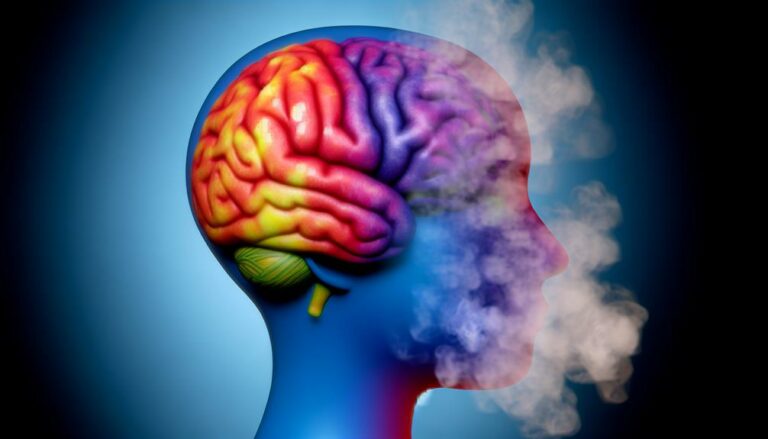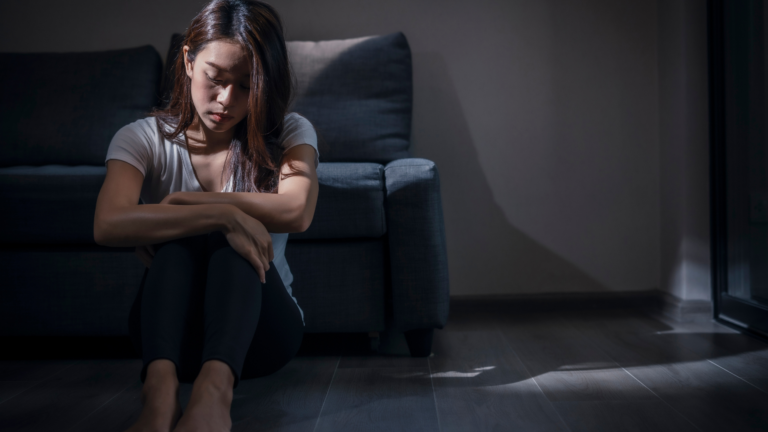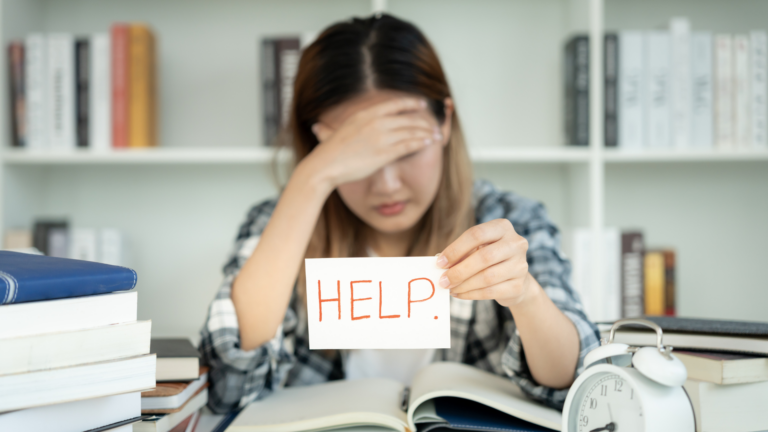Unlock the door to understanding how cannabis interacts with anxiety and depression. As you navigate through the complexities of this topic, you’ll uncover surprising insights into the potential effects of cannabis on mental health.
From soothing anxiety symptoms to managing depression, the exploration of cannabis’s impact on these conditions is a journey worth undertaking.
Table of Contents
Here Are the Cannabis Impact on Anxiety and Depression:
Cannabis Overview
Cannabis, also known as marijuana, is a plant that has been used for various purposes throughout history. It contains compounds called cannabinoids, with the two most common ones being tetrahydrocannabinol (THC) and cannabidiol (CBD). THC is responsible for the psychoactive effects, giving the feeling of being ‘high,’ while CBD is non-intoxicating and is associated with potential therapeutic benefits.
Humans have cultivated cannabis for thousands of years, initially for its fiber and seeds, and later for its medicinal and recreational uses. Today, cannabis is consumed in various forms, including smoking, vaping, edibles, oils, and topical products.
The plant has garnered attention for its potential therapeutic properties, especially in the treatment of conditions like chronic pain, epilepsy, and anxiety. However, it’s essential to note that the legal status and regulations surrounding cannabis vary widely across different regions and countries.
As research into cannabis continues to evolve, its impact on mental health conditions like anxiety and depression is an area of growing interest and study.
RELATED ARTICLE: Cannabis Impact on Anxiety and Depression: What to Know
Anxiety Symptoms Relief
In addressing anxiety symptoms relief, it’s crucial to consider the potential impact of cannabis on alleviating these distressing manifestations. Many individuals report experiencing a reduction in feelings of anxiety after using cannabis. The compounds in cannabis, such as CBD (cannabidiol) and THC (tetrahydrocannabinol), interact with the endocannabinoid system in the body, which plays a role in regulating mood and emotions. CBD, in particular, is believed to have anxiolytic properties, potentially reducing the intensity of anxiety symptoms.
It is essential to note that the effects of cannabis on anxiety can vary from person to person. While some individuals may find relief from their symptoms, others may experience increased anxiety or paranoia, especially with high-THC strains. Finding the right dosage and strain that works best for managing anxiety is crucial. Additionally, incorporating other anxiety-reducing strategies, such as therapy or mindfulness practices, alongside cannabis use may enhance the overall effectiveness of symptom relief. As with any treatment, consulting with a healthcare provider before using cannabis for anxiety is recommended to ensure safe and appropriate use.
Depression Management Benefits
When managing depression, exploring the potential benefits of cannabis can provide valuable insights into alternative treatment options. Cannabis has shown promise in alleviating symptoms of depression by interacting with the endocannabinoid system in the brain, which plays a crucial role in regulating mood and emotions.
Research suggests that certain compounds in cannabis, such as CBD, may have antidepressant effects by influencing serotonin receptors in the brain. Additionally, THC, another component of cannabis, can help in managing depression by promoting relaxation and reducing stress levels.
It is important to note that the effects of cannabis on depression can vary from person to person, and more research is needed to fully understand its mechanisms and long-term impacts. Consulting with a healthcare provider before incorporating cannabis into your depression management plan is crucial to ensure it aligns with your overall treatment goals and medical history.
Impact on Stress Levels
Exploring the potential impact of cannabis on stress levels can shed light on its role in providing relief and promoting relaxation amidst the challenges of managing mental health conditions. Cannabis has been suggested to have stress-reducing properties due to its interaction with the endocannabinoid system in the body. The cannabinoids in cannabis, such as CBD, have shown promise in potentially reducing stress levels by affecting neurotransmitter function and neural pathways related to stress response.
Individual responses to cannabis in managing stress can vary, as factors like dosage, frequency of use, and an individual’s unique biochemistry all play a role. While some users report feeling more relaxed and less stressed after consuming cannabis, others may experience increased anxiety, especially with products high in THC. It’s essential to consider these factors and consult with a healthcare provider before using cannabis for stress management, especially for individuals with a history of anxiety or substance use disorders.
Further research is needed to fully understand the effects of cannabis on stress levels and its long-term implications for mental health.
Types of Cannabis Products
Various cannabis products offer a range of consumption options and cannabinoid profiles, catering to diverse preferences and therapeutic needs. When considering cannabis for anxiety or depression, it’s essential to understand the types of products available.
Firstly, you have dried cannabis flower, which can be smoked or vaporized. This form provides quick relief but may not be suitable for those with respiratory issues.
Next, cannabis oils and tinctures are popular for their discreet consumption and precise dosing. They’re often preferred by individuals seeking longer-lasting effects.
For those looking to avoid inhalation, edibles like gummies, chocolates, or infused beverages offer a tasty alternative. However, their onset can be delayed, so patience is key.
Additionally, topical products such as creams or balms can be used for localized relief without the psychoactive effects.
Understanding the variety of cannabis products allows you to choose the most suitable option based on your preferences and therapeutic goals. Remember to consult with a healthcare professional for personalized guidance.
Dosage Considerations
Considering the diverse range of cannabis products available for managing anxiety and depression, understanding appropriate dosage considerations becomes crucial for effectively addressing your therapeutic needs. When it comes to using cannabis for anxiety and depression, here are some key dosage considerations to keep in mind:
- Start Low and Go Slow: Begin with a low dose and gradually increase it to find the minimum effective dose for your symptoms.
- Consult a Healthcare Professional: Seek guidance from a healthcare provider experienced in cannabis therapeutics to determine the right dosage for your specific condition.
- Consider Product Potency: Different products have varying levels of cannabinoids, so understanding the potency of the product you’re using is essential for accurate dosing.
- Monitor Your Response: Pay close attention to how your body responds to different doses, and make adjustments accordingly to achieve optimal therapeutic effects.
Potential Risks and Side Effects
Understanding the potential risks and side effects associated with cannabis use for managing anxiety and depression is essential for making informed decisions about your treatment plan. While cannabis shows promise in alleviating symptoms, it’s crucial to consider the downsides.
Common side effects of cannabis use can include dry mouth, dizziness, impaired coordination, and increased heart rate. In some cases, particularly with high THC strains, cannabis can induce feelings of paranoia and anxiety, exacerbating existing mental health issues. Long-term heavy use of cannabis may also lead to cognitive impairment and dependency.
It’s important to note that individual responses to cannabis vary, so what works for one person may not be suitable for another. Additionally, cannabis can interact with certain medications, so consulting with a healthcare provider before incorporating it into your treatment regimen is advisable.
Cannabidiol (Cbd) Vs. Tetrahydrocannabinol (Thc)
When considering the differences between CBD and THC in managing anxiety and depression, it’s essential to understand their unique effects on mood.
CBD is often praised for its potential to help with anxiety, while THC might have varying effects on depression depending on the individual.
Exploring how these cannabinoids interact with the body can provide insights into their potential impact on mental health.
CBD for Anxiety
In the realm of anxiety treatment, comparing Cannabidiol (CBD) and Tetrahydrocannabinol (THC) reveals distinct effects on the mind and body. When considering CBD for anxiety, here are four key points to keep in mind:
- Non-Psychoactive: CBD doesn’t cause the ‘high’ associated with THC, making it a more favorable option for those seeking anxiety relief without altered mental states.
- Anxiolytic Properties: Studies suggest that CBD may help reduce anxiety levels by interacting with serotonin receptors in the brain.
- Legal Status: CBD derived from hemp is legal in many places, providing easier access for individuals looking to manage anxiety symptoms.
- Minimal Side Effects: Compared to THC, CBD is generally well-tolerated, with mild side effects such as fatigue or changes in appetite.
THC and Depression
Considering the impact of THC on depression compared to CBD, it’s essential to understand the distinct effects each cannabinoid may have on mental health.
THC, the psychoactive component of cannabis, can have mixed effects on depression. Some studies suggest that high levels of THC may exacerbate depressive symptoms in some individuals, especially if consumed in large doses or over a prolonged period.
On the other hand, CBD, another compound found in cannabis, has shown potential for alleviating depressive symptoms due to its interaction with serotonin receptors in the brain.
While THC and CBD both influence mental health, the balance between the two cannabinoids and individual differences should be considered when exploring their effects on depression.
Effects on Mood
To understand the impact of Cannabidiol (CBD) versus Tetrahydrocannabinol (THC) on mood, it’s crucial to delve into their distinct effects and how they interact with mental health.
- CBD for Anxiety Relief: CBD is known for its anxiolytic properties, which may help in reducing feelings of stress and anxiety.
- THC and Euphoria: THC is more likely to induce feelings of euphoria or a ‘high’ due to its psychoactive nature.
- CBD’s Calming Effect: Some studies suggest that CBD can promote a sense of calmness without the intoxicating effects associated with THC.
- THC’s Impact on Mood Swings: THC may lead to mood swings in some individuals, especially at higher doses or in sensitive individuals.
Understanding these differences can help individuals make informed decisions when considering cannabis products for mood management.
Research Findings on Efficacy
Understanding the impact of cannabis on anxiety and depression requires a comprehensive analysis of the research findings on efficacy. Numerous studies have been conducted to evaluate the effectiveness of cannabis in managing these mental health conditions. Research indicates that cannabinoids, the active compounds in cannabis, interact with the endocannabinoid system in the brain, which plays a crucial role in regulating mood and emotional responses.
Studies have shown that cannabis may have potential benefits for individuals experiencing anxiety and depression. Some research suggests that certain cannabinoids, such as CBD, may help alleviate symptoms of anxiety by interacting with serotonin receptors in the brain. Additionally, THC, another prominent cannabinoid, may have mood-regulating properties that could benefit individuals with depression. However, the efficacy of cannabis in treating these conditions can vary depending on factors such as the type of cannabis strain, dosage, and individual differences in response.
While research findings on the efficacy of cannabis for anxiety and depression are promising, further studies are needed to fully understand the mechanisms and long-term effects of cannabis use on mental health. It’s essential to consult with a healthcare provider before incorporating cannabis into your treatment regimen for anxiety or depression.
Recommendations for Safe Use
For safe and effective use of cannabis in managing anxiety and depression, it’s important to adhere to specific recommendations to ensure optimal outcomes. When considering integrating cannabis into your mental health regimen, here are some key suggestions to keep in mind:
- Start Low, Go Slow: Begin with a low dose of cannabis and gradually increase it to find the minimum effective dose for your symptoms.
- Consult a Healthcare Provider: Before starting any cannabis treatment, it’s crucial to consult with a healthcare provider who’s knowledgeable about cannabis and mental health.
- Choose the Right Strain: Different strains of cannabis can have varying effects on anxiety and depression. Research and select a strain that’s known for its anxiolytic properties.
- Monitor Your Symptoms: Keep track of how cannabis impacts your anxiety and depression symptoms. This can help you adjust your dosage or strain as needed for better management.
Frequently Asked Questions
Can Cannabis Be Safely Used in Conjunction With Other Medications for Anxiety and Depression?
Yes, cannabis can be safely used with other medications for anxiety and depression, but caution is advised. Consult with your healthcare provider to ensure compatibility and monitor for potential drug interactions or adverse effects.
Are There Any Long-Term Effects of Using Cannabis for Anxiety and Depression Management?
Long-term effects of using cannabis for anxiety and depression management vary. It’s essential to monitor how it impacts you over time. Discuss any concerns with healthcare providers. Stay informed and make decisions that prioritize your well-being.
How Does Cannabis Consumption Method (Smoking, Edibles, Oils) Impact Its Effectiveness for Anxiety and Depression?
When considering how cannabis consumption method affects its efficacy for anxiety and depression, remember that smoking provides rapid relief but may harm your lungs. Edibles take longer to work but last longer. Oils offer precise dosing control.
Is There a Difference in the Effects of Cannabis on Anxiety Versus Depression Symptoms?
In understanding the effects of cannabis on anxiety versus depression symptoms, it’s crucial to analyze how the plant’s compounds interact with your body’s receptors differently for each condition. Recognizing these distinctions can guide tailored treatment approaches.
Are There Specific Strains of Cannabis That Are More Effective for Treating Anxiety and Depression, and How Do You Determine Which One to Use?
To determine which cannabis strains are best for treating anxiety and depression, consider ones high in CBD like ACDC or Harlequin for calming effects. Experiment gradually, starting with low doses, and track how each strain affects your symptoms.
Conclusion
In conclusion, while cannabis may offer potential relief for anxiety and depression symptoms, it’s important to approach its use with caution. Understanding the differences between CBD and THC, as well as potential risks and side effects, is crucial for safe consumption. Consulting a healthcare professional and starting with low doses can help individuals navigate the complexities of using cannabis for mental health benefits.
With proper education and guidance, cannabis can be a tool to manage anxiety and depression effectively.




